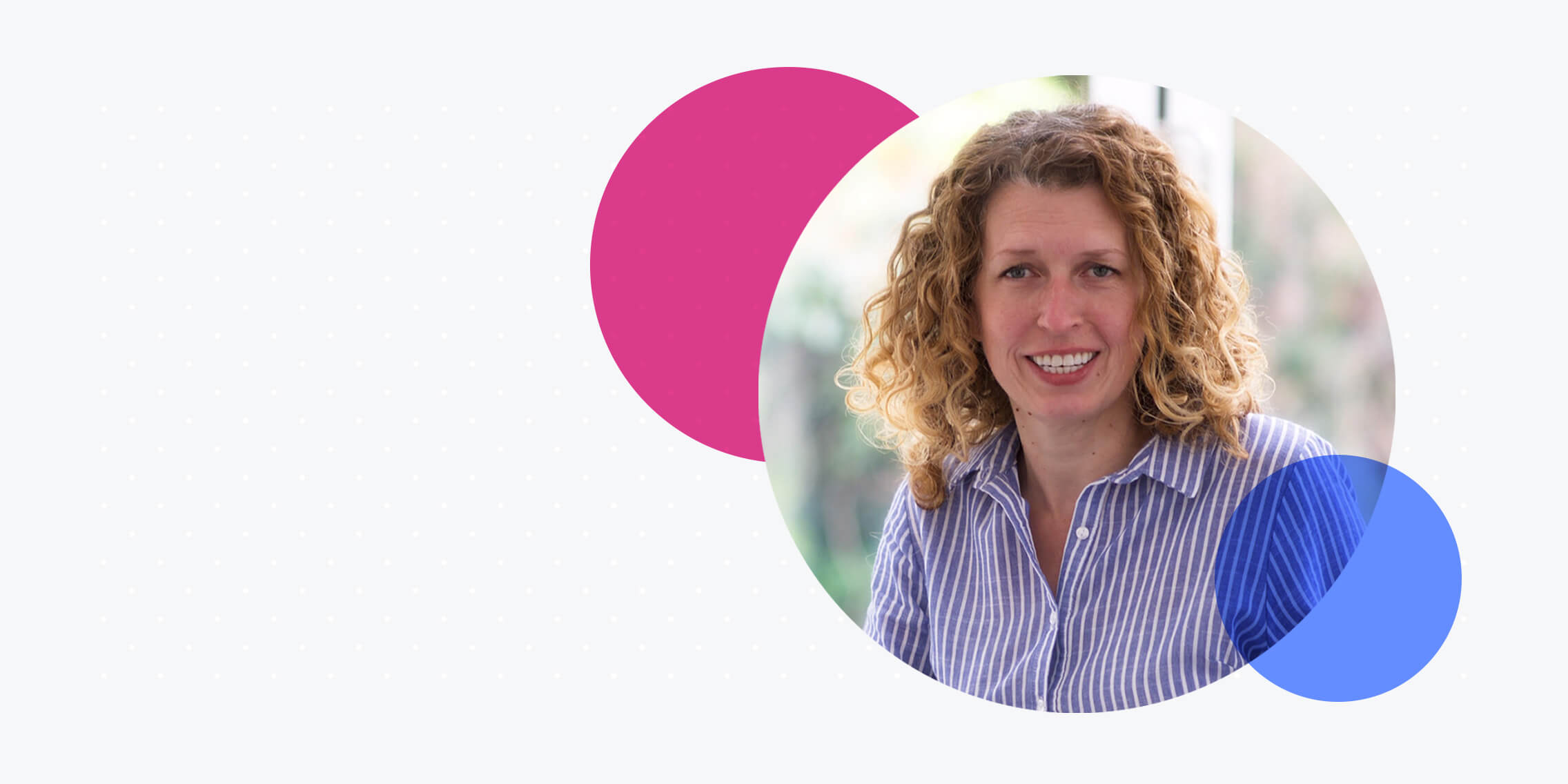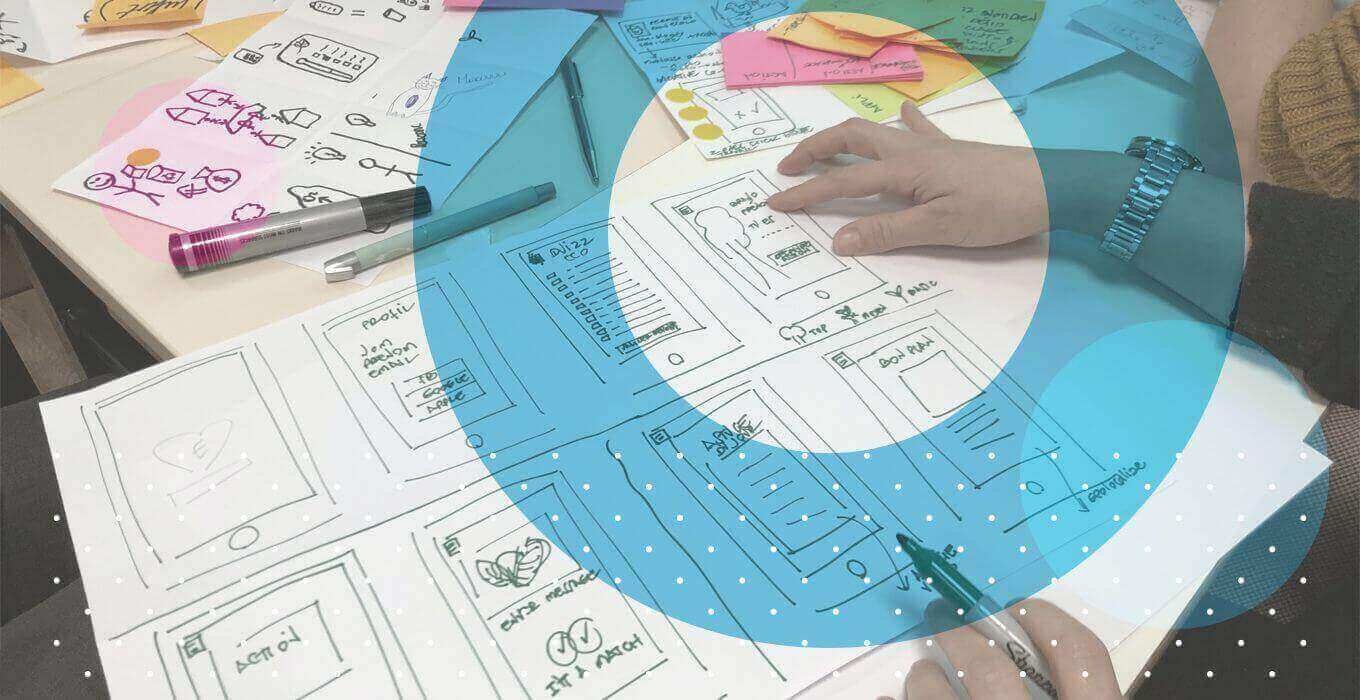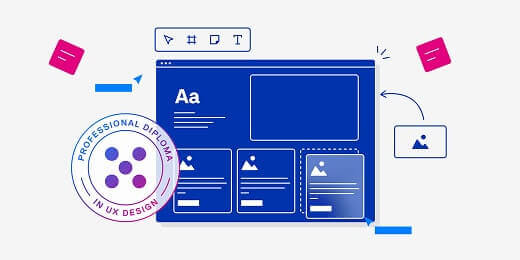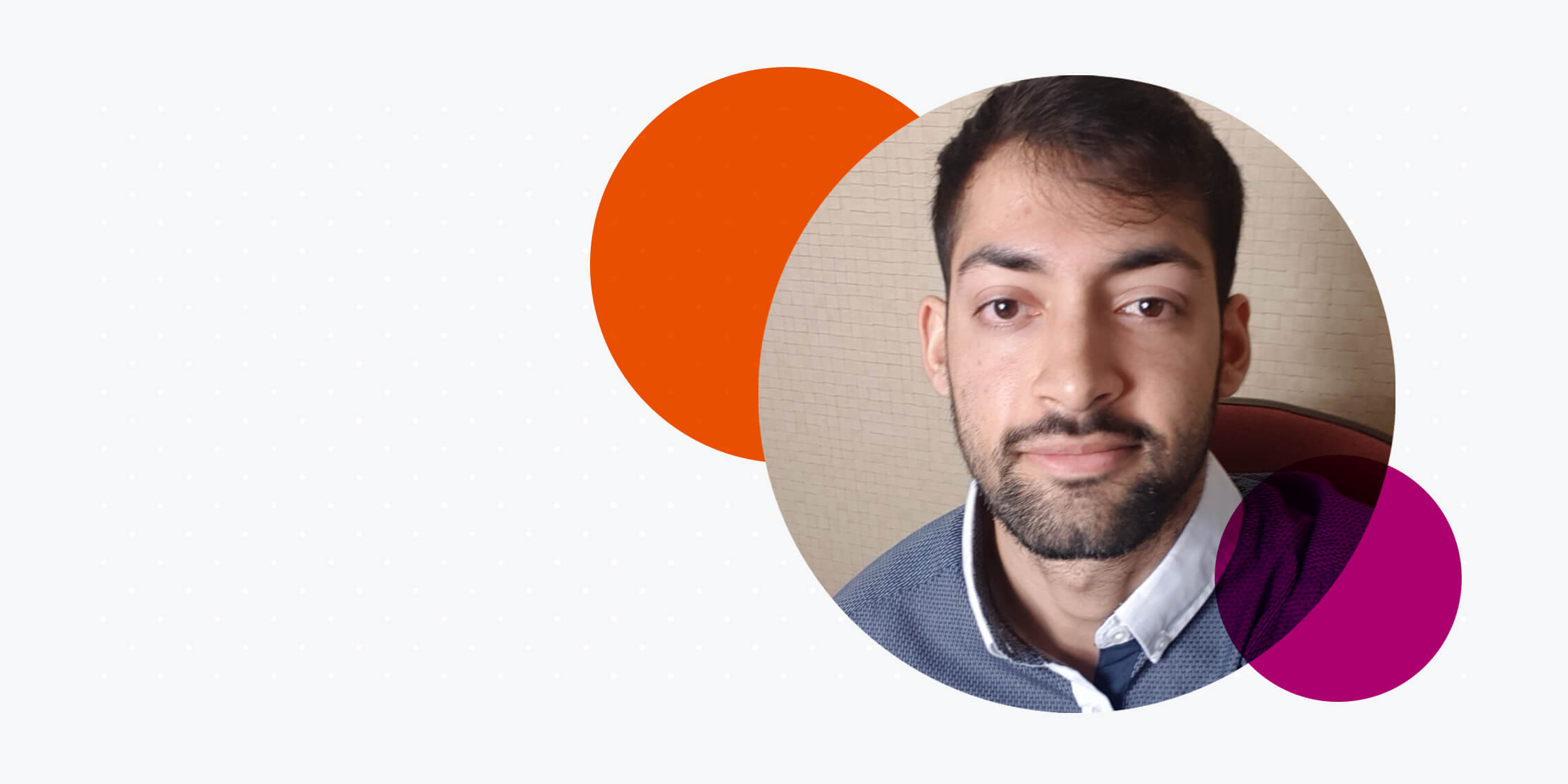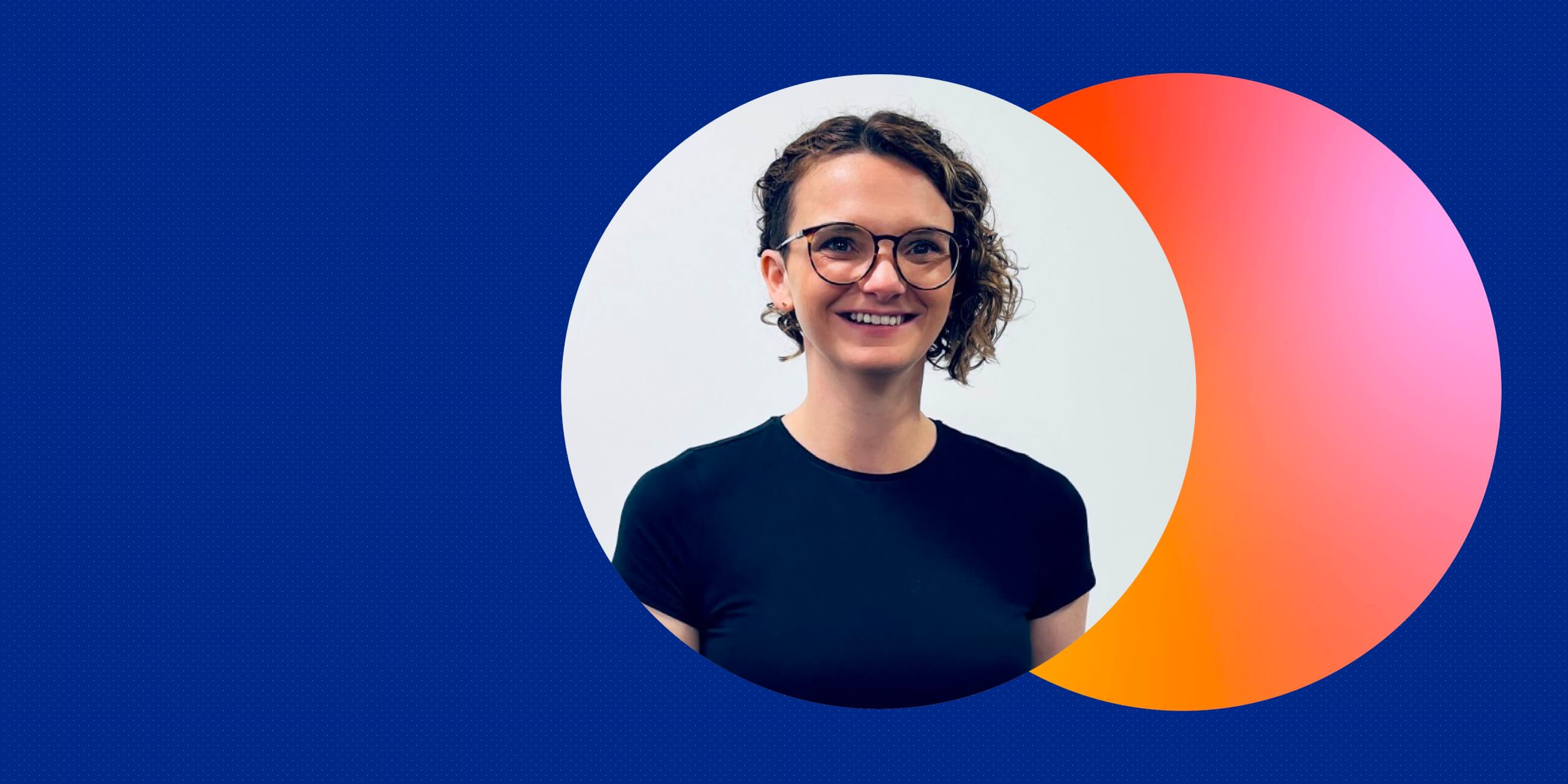She worked in a number of roles in her previous company including publisher, project manager and business analyst. During that time, Jenny found that she was speaking to product users and practicing UX principles without realising that UX was an industry in its own right.
She spoke to us about why she chose to study with the UX Design Institute and how she managed her studies and family commitments.
What drew you to the Professional Diploma in UX Design?
The thing that massively appealed was that it was a more substantial course than others. The fact that it was credit rated by a university made it more credible. I also really liked that the course mentors were working in the industry.
I felt like I had some UX experience from my previous role but I had no official UX job title. I had been looking at UX jobs online and so much of it was off-putting because it sounded like you needed a million things.
I thought this course would help me get recognised as somebody with a certain level of skill in UX and differentiate me from other people applying for jobs. And it did.
Has the course helped you get hired?
Yeah, it certainly has. I got my job after an informal chat with the MD at a jobseekers event. My introductory conversation was that I had worked in UX principles for 20 years before I knew that UX was a thing and I then studied it in greater detail with the Professional Diploma in UX Design.
I mentioned the fact that the course is associated with the Glasgow Caledonian University and that it’s a year long. That gave me the level of confidence to say “I’m qualified, I have the skills and I am committed to this as a career”. You wouldn’t be able to stand there and say that if you did a two day workshop.
The diploma has definitely given me more confidence in my ability. I know I have the skills to apply for jobs in the industry.
What was the course content like?
The video format was great. It was very easy to follow and understand. I used to print all the course guides out and write down any important notes. I would also watch the videos and summarise them after. The way modules were presented was really accessible and easy to understand. It really suited me and the way I absorb information.
How did you find the level of support during your studies?
It was great, I think you have to approach an online course with a mindset that you get out what you put in. You have to be self-motivated. Aoife, the course manager, was brilliant! She was always very responsive to any queries however big or small they were. If things had gone quiet for a while, she would check in with emails just to remind you and to give you a nudge.
The mentors in the industry were brilliant. At one point through the course, James started to show us some of his own work and how that linked to the project we were doing at the time. That was really useful.
We were trained by real people who were doing this for a living and truly understood the position that we, as students, all wanted to be in.
I found James to be really helpful whenever I emailed stuff over for feedback. There was always a response which I really appreciated. I really felt supported especially considering it was an online course with students from all different time zones.
What was your favourite thing about the course?
I liked the fact that it was based on a real project lifecycle. It allowed you to get under the skin of a project and get that deep understanding that you need to work in UX.
You weren’t just dipping in and out of something new each module, you were developing a project from the beginning. I loved the fact that it was one core case study that ran throughout.
What was the biggest challenge that you faced in the course?
I think it was staying self-motivated and keeping up the pace. It was sometimes hard with no strict deadlines and nobody saying it needs to be marked by this date. So that was challenging. But it was more of a personal challenge.
I had every intention of doing the course within the 6 months despite the normal demands in life such as having a child. It was going well, Aoife was a massive support and I was loving all the slack chat going on. After the first couple of webinars it became clear to me that I wasn’t going to be able to pull it off in the 6 months. It took me a year in the end which was fine.
Can you describe your current role?
I’m a user experience researcher at a company called Sigma. It’s my job to plan and carry out various user engagement techniques and to communicate findings to clients and wider project teams. I also assist with expert reviews, helping to identify potential UX issues and opportunities.
Before this role, I’d taken a long time to reflect on my career to date, to pinpoint what I enjoyed the most and which of the UX processes I was really good at.
I wanted variety in the role and I also needed flexibility to work around my family.
What’s your favourite thing about working in UX?
I think it brings together my skills and interests. I’m naturally analytic and also creative. I genuinely care about people, I care about details and about making things better.
UX brings elements of design, problem solving and human psychology together and it’s fascinating stuff. Every day is different and I love helping people to improve their products and services.
How did the diploma course prepare you for working in the industry?
The course really hammers home the fundamental values of UX which are so important. You really need to be able to show your understanding of these values during the portfolio process and interviews.
The course gives you hands-on experience of all of the key aspects of a UX project lifecycle and you come out with a thorough understanding of the process from start to finish. That has been so useful in my role, along with the knowledge about specific techniques and methods. I’ve found myself referring back to my course notes on a number of occasions!
What advice would you give to someone considering the course?
I would tell them to go for it, I think it is very reasonably priced when you look at the value you get from the course.
It’s such a solid foundation for anyone interested in getting into UX, whether they want to bring those skills into their current job or whether they want to pursue a more UX-focused career. The credit rating helps people recognise that if you’ve completed the course, you have a certain level of knowledge and skill in UX. That’s really important.
Broader advice would be to embrace how the course is structured and stick with it. Get feedback whenever you can. It’s certainly been worthwhile for me! I don’t think I ever would have gotten that level of knowledge and value or been able to explore the whole cycle of UX if I had done any kind of short term course.

